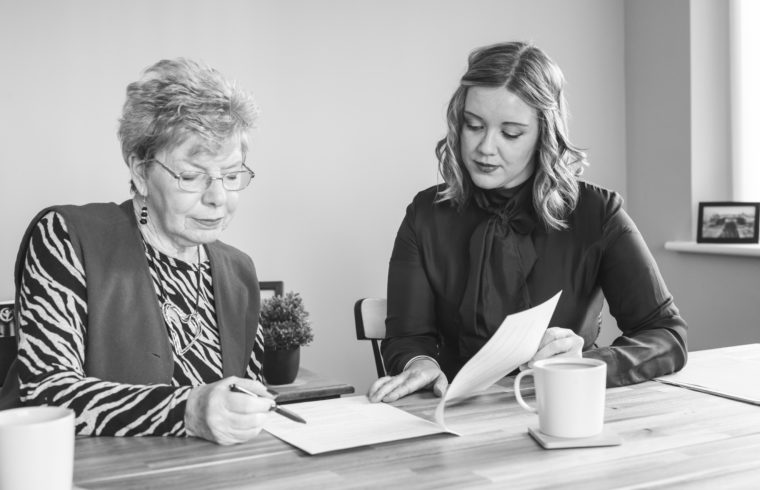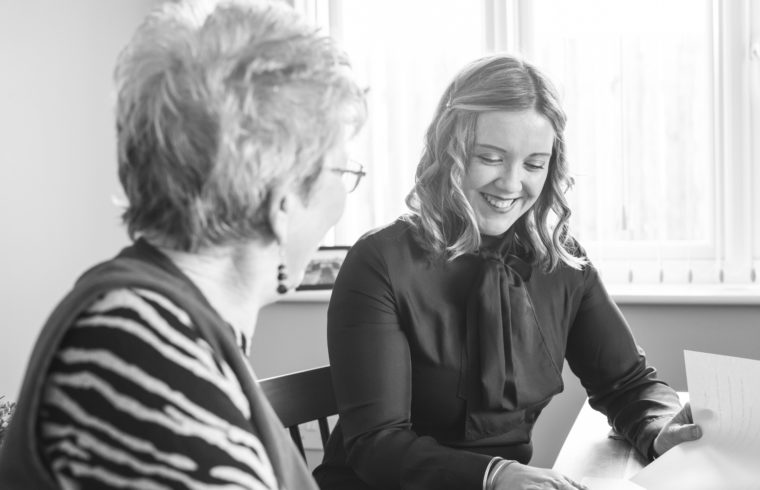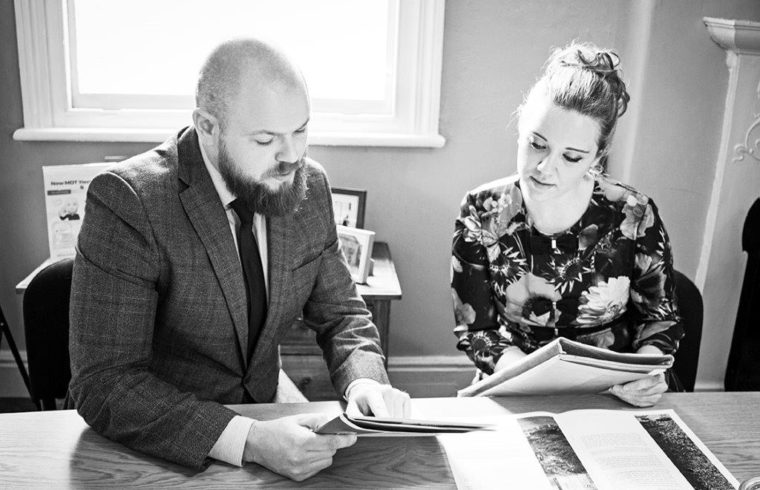Wills and Trusts are helpful tools for empowering you and your loved ones to plan for the future. As much as making a Will can be a complicated, emotional topic to broach and deal with, my job is to make the process as simple as possible, and to leave you with the confidence and peace of mind that you have a Will that you are happy with and understand.
My approach to Wills and Trusts is less focused on what happens when you die, and instead, more about making it your opportunity to leave a loving legacy for any family members, friends and causes of your choosing.
Why write a Will?
A Will leaves your loved ones with a clear understanding of how you wish for your estate – properties, finances and belongings – to be handled when you pass away.
While everyone understands the value of having a valid Will in place, many people don’t get around to doing it when they first think of it. Often life gets in the way, or the unpleasantness of thinking about what happens when die means we avoid it. In some cases, it can simply be a case of not knowing where to start.
Without a valid Will in place, your loved ones may have limited options for handling your estate when you pass away. However, thinking about your Will can be particularly difficult if you have difficult relationships to manage in your family, or if you have been estranged from a loved one. It can also be difficult if you have a loved one who is experiencing challenging circumstances of their own and you may be uncertain about how and when you want them to be able to take their inheritance. Where this affects you, it is my responsibility to help you identify the best solutions for you and your loved ones with sensitivity, compassion and, most importantly, without judgement.
Truthfully, there may never be the ‘ideal’ opportunity to plan your Will. However, starting the process early can open up opportunities and conversations that might not be obvious or available to you otherwise.
When to use a Trust
Trusts are usually considered to be for the rich, but you don’t have to be wealthy to make use of the benefits of a trust. A Trust is just the vehicle you use you hold an asset. Trusts can be set up during your lifetime or in your Will.
The easiest example of a Trust would be where you set up a bank account for a child. You set up the bank account in your name, but the money it holds is for the benefit of the child. You look after the money in that bank account (i.e. the Trust Fund) as a Trustee for the child, who is the Beneficiary. Whilst you may be named on the bank account, the money within it does not belong to you.
If we look at this example in a Will context, if you were to leave money to a young child in your Will that money would be looked after them until they were 18 (or 21, 25 or whichever age you specify). This creates a Trust.
Trusts can be used for a variety of planning needs. Clients will often make use of Trusts where they want to reduce the value of their estate (i.e. the value of all of their assets and worldly goods) to bring them within the inheritance tax nil rate band. In this scenario, individuals may gift money or assets into a trust and subject to them surviving 7 years the assets are no longer considered part of their estate for tax purposes. Usually there is a reason why they want to use a trust rather than simply making a gift (for example because they don’t want their beneficiaries to have immediate access or control).
Trusts can also be used in Wills to make sure that assets are protected on death. The most common trust I use is when making Wills for couples. Rather than leaving their estate to one another outright, they leave their estate on trust so that the survivor of them has use and access to the estate which is gifted to the trust during their lifetime, but ultimately it is safeguarded for other beneficiaries (for example, the children). There are different types of trusts we can use, and this is where tailored advice is needed so that the correct form is chosen for you depending on your goals. The attraction to this type of arrangement is usually because it has care fee planning or tax planning advantages. They can also protect the estate if the survivor were to get married again.
Finally, trusts can be used where you are making gifts to beneficiaries who you have concerns about. Perhaps you don’t want them to inherit and have absolute access to that gift. This could be because you have concerns about their ability to manage their finances, or that they may get divorced, and you want your trustees to have some control and to look after their inheritance for them.
Trusts are essential if you are making gifts to loved ones who are considered vulnerable. Where you have a vulnerable beneficiary, a trust is the ideal tool to make sure that their inheritance is safeguarded.
All of this can sound complicated, but if you want further information I am happy to meet with you to discuss your personal circumstances, to see if a trust would be helpful to you.
Reviewing your Will
In the same way that your life evolves, grow and changes – sometimes slowly, and sometimes rapidly! – your Will is a living document that should grow and evolve with you. It is worthwhile regularly reviewing your most recent Will to ensure it still reflects your wishes and circumstances.
I recommend that you review your Will every five years, or at earliest convenience following major life events (such as the birth of a new child or grandchild).
Whether you discover that you wish to make some changes, or you decide that your most recent Will still works as well for you as it did when first drafted, a regular Will review serves to provide you with ongoing peace of mind for your loved ones’ future.
Celtic Law’s approach to drafting your Will
Although making your Will can seem complicated at first, my approach to drafting your Will is designed to make the process as simple and easy to understand as possible, reflecting your wishes and options every step of the way.
Our first meeting
We’ll arrange a free, no-obligation meeting either at the Celtic Law offices or your home to discuss your requirements and wishes. This includes who you wish you leave gifts to and the gifts themselves (whether property, finance, or belongings). You’ll have the opportunity to ask me any questions about your Will or the process of drafting one.
Costs
From our first meeting, I will be able to advise what type of Will is right for you and the costs associated with my service to prepare it. In many cases, a Simple Will is appropriate where you wish to leave your estate to your loved ones outright. However, if you require something more detailed, will we have opportunity to discuss and confirm costs at our meeting.
Drafting your Will
If you choose to proceed, I will draft your Will and prepare a personal Will Report for you. This is a separate document that acts as a useful record of what we have discussed, what the items in your Will mean, my guidance, and why we have structured your Will they way that we have (including details of any Trusts involved).
Making your Will valid
You will have opportunity to make adjustments to your Will before signing it. Once you are happy with your Will, I will assist with arranging its signing and witnessing, after which point your Will will become a valid legal record of your wishes.
Costs
Costs for making your Will will be outlined to you at the start of the process. A Simple Will for you as individual from Celtic Law Ltd starts at £180.00 + VAT. Alternatively, a Simple Mirror Will (for couples) from Celtic Law starts at £280.00 + VAT.
A Simple Will is normally an appropriate option if you wish to leave your estate to your loved ones outright. However, if you need anything more detailed than a Simple Will – for example, a Will that needs to utilise Trusts – our initial meeting will provide opportunity to discuss the cost of the service.
All Will writing costs from Celtic Law cover our meetings, my drafting or your Will, its signing, and your detailed Will Report.
Please get in touch if you want to know more about making a Will, reviewing an existing Will or to talk about how trusts can work for you.
What will it cost?
Click below for a detailed guide on costs and what a typical client may pay.



